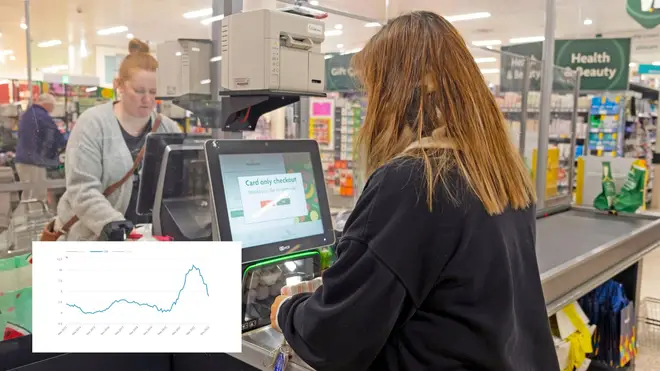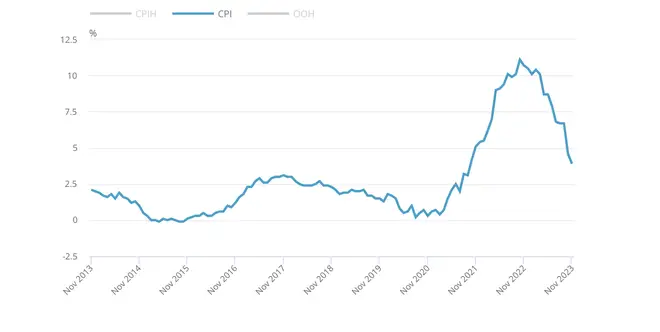
Ian Payne 4am - 7am
20 December 2023, 07:07 | Updated: 20 December 2023, 08:00

Inflation has fallen to 3.9% - a bigger than expected drop and a large fall from the previous figure of 4.6%.
It brings the rise much closer to the Bank of England's 2% target.
Figures from the Office for National Statistics, released on Wednesday, said the Consumer Prices Index - one method of measuring inflation - had dropped to 3.9% in November.
That means that while prices are still going up, they are being hiked at a much slower rate than levels of 11.1% recorded in October last year.
It has been partly driven by falling petrol and diesel prices, with the average cost of petrol dipping from 163.6p a litre in November 2022 to 151p a litre last month.
Grant Fitzner, chief economist at the ONS, said: "Inflation eased again to its lowest annual rate for over two years, but prices remain substantially above what they were before the invasion of Ukraine.
"The biggest driver for this month's fall was a decrease in fuel prices after an increase at the same time last year.
"Food prices also pulled down inflation, as they rose much more slowly than this time last year.
"There was also a price drop for a range of household goods and the cost of second-hand cars."
Inflation slowed down as the Bank of England implemented a succession of rises to interest rates, having recently chosen to hold them at 5.25% - the highest level for 15 years.
Rishi Sunak had pledged to halve inflation from 10.7% as one of his key priorities - and that has been met.
That has been thanks in part to the independent Bank of England's policies, though the prime minister has been cautious in making any decisions that could contribute to overheating the economy.

He did, however, budge on tax cuts as his chancellor Jeremy Hunt slashed National Insurance contributions from 12% to 10% in his Autumn Statement.
Mr Hunt said: "With inflation more than halved we are starting to remove inflationary pressures from the economy.
"Alongside the business tax cuts announced in the Autumn Statement this means we are back on the path to healthy, sustainable growth.
"But many families are still struggling with high prices so we will continue to prioritise measures that help with cost of living pressures."
Mel Stride, the work and pensions secretary, told LBC's Nick Ferrari at Breakfast: "I think this is really good news.
"I think this is a turning point, I think the economy will definitely start to benefit from this.
"It could take all sorts of pressures off the economy."
Inflation began to soar after a combination of increased demand following the Covid pandemic and the Russian invasion of Ukraine.